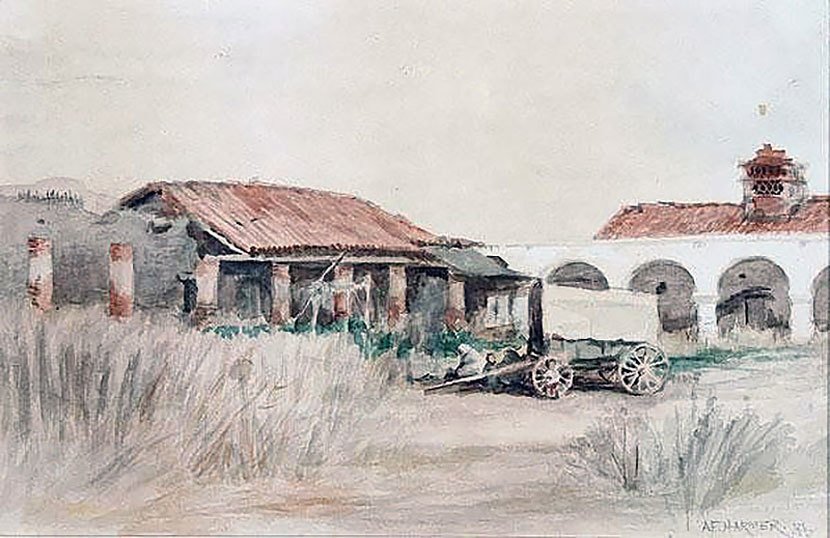Helen Hunt Jackson (1830–1885)
From Writing Los Angeles: A Literary Anthology

This month Los Angeles celebrates its 240th birthday.
On September 4, 1781, forty-four people of mixed races and ethnicities, including twenty-two children, were sent by Felipe de Neve, the Spanish governor of Alta California, to establish El Pueblo de la Reyna de Los Angeles. Forty years to the month after its founding, at the conclusion of the Mexican War of Independence, Los Angeles began flying the flag of Mexico. Then, in 1848, it became an American town, purchased as part of the Treaty of Guadalupe Hidalgo at the conclusion of the Mexican-American War. It was incorporated as an American city in 1850.
The area’s multiple identities—as a home to Native American tribes, as a Spanish pueblo, as a Mexican town, as a sprawling American urban center—were both a source of fascination and alarm to Helen Hunt Jackson when she visited the city two years after its centennial.
In 1883, while she was in California, Jackson published twenty travel essays both celebrating Native American, Spanish, and Mexican heritage and lamenting how those traditions were vanishing under a flood of settlers from the East. Her chief concern, however, was the destitute conditions of the Native American tribes, which inspired her to write Ramona, her most famous book—and perhaps one of the most misguided (albeit well-meaning) “social novels” ever written.
For our Story of the Week selection, then, we present “Echoes in the City of the Angels,” one of the twenty essays she wrote that year, and explain in an introduction how her research in California led her to write Ramona—and how the book’s goal backfired.
Read “Echoes in the City of the Angels” by Helen Hunt Jackson



